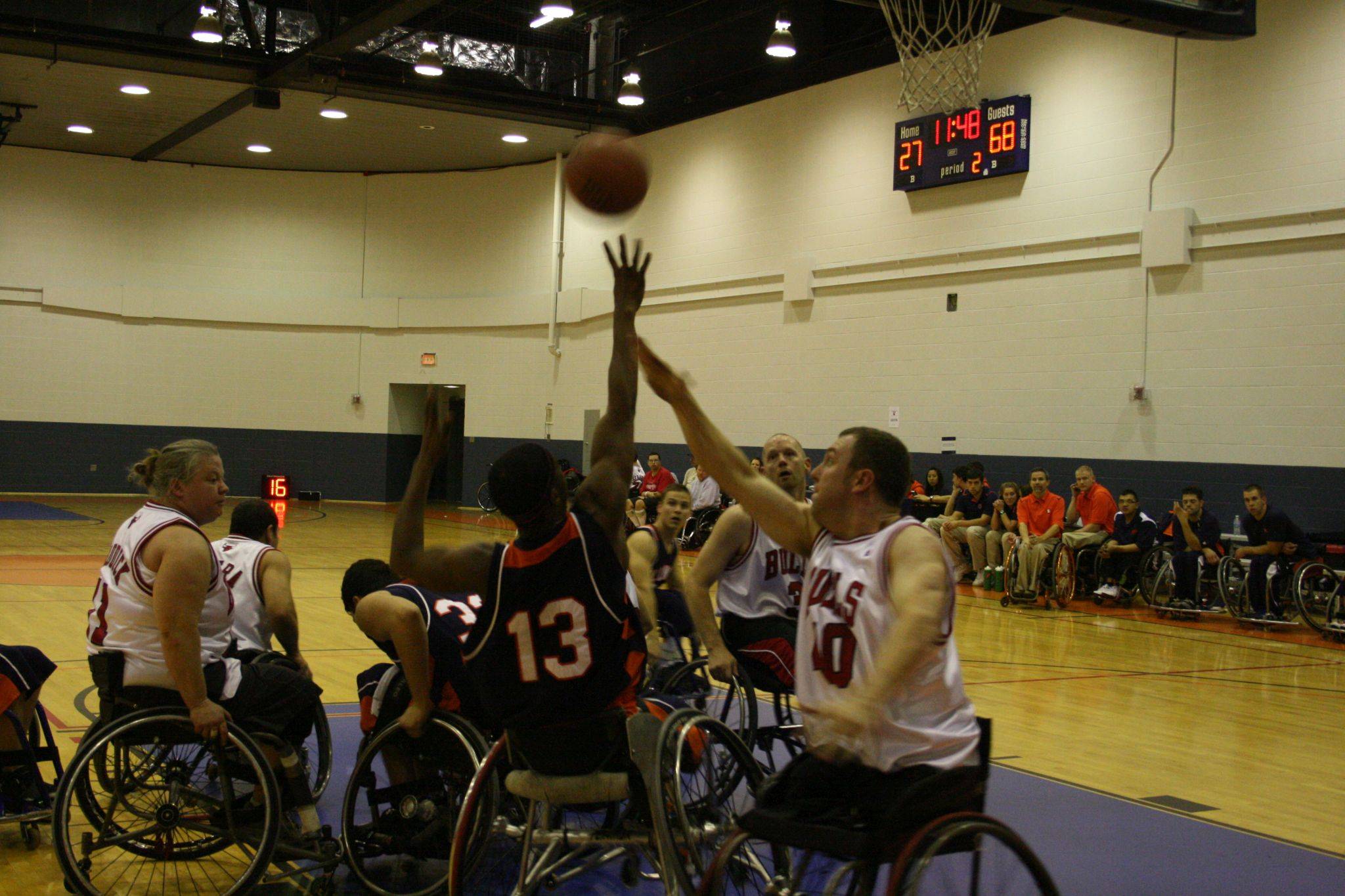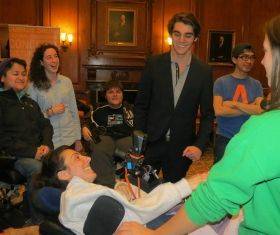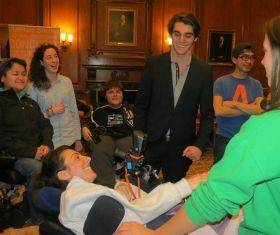 Automatic doors, ramps on public transportation and handicap bathrooms are a natural part of life at the University of Illinois campus. But these accessible devices for disabled students are not so common at other Universities.
Automatic doors, ramps on public transportation and handicap bathrooms are a natural part of life at the University of Illinois campus. But these accessible devices for disabled students are not so common at other Universities.
According to a book called College Success for Students with Physical Disabilities By Chris Wise Tiedermann, The University of Illinois is among the five universities that meet the needs of Physically Disabled students better than others.
Carlie Cooke, senior at the University of Illinois, is a member of Delta Sigma Omicron (DSO), a rehabilitation service fraternity and is majoring in Recreational Sport & Tourism. She feels that U of I is definitely one of the best campuses for physically disabled students.
She talks about how the Disability Resource and Education Services (DRES) center at the University provides disabled students with many accommodations and services to meet their needs. DRES provides disabled students with transportation if they need assistance getting around. Along with alumni, DRES also funds the wheelchair athletics program.
The wheelchair athletics program consists of the men and women’s basketball team and a track team. Cooke plays on the women’s basketball team.
“We practice every morning, and we have weight lifting, we practice everyday and most of the training I would say is similar to what the able bodied team does,” Cooke said.
They practice at the ARC and travel on weekends for games. There are seven different colleges that have other wheelchair basketball teams.
The University also has another unique program for disabled students. DRES and the Beckwith Residential Support Services (BRSS) began a partnership with University Housing with the opening of Timothy J. Nugent Hall to incorporate living accommodations for students with severe disabilities. The Beckwith programm is housed within Nugent Hall.
“It’s brand new, state of the art, super accessible, and gives students that have severe disabilities a chance,” said Cooke. “The Beckwith staff helps the severely disabled residents with their daily tasks, and most universities I don’t think have a place for these people to go to college because they can’t necessarily be completely independent if they don’t have those services set up.”
According to Patricia Malik, the director of Beckwith, the Beckwith housing program’s purpose is to allow students with severe disabilities the chance to move away from home, live independently, and pursue an education. The severely disabled who graduate high school often do not move away to pursue higher education because there isn’t a place for them to live that supports their needs, but Beckwith changes this.
Beckwith can support up to 26 residents. It occupies the first floor of Nugent Hall and offers various programs and supportive infrastructure that makes it livable for students.
Students living within the Beckwith facilities in Nugent Hall hire their own personal assistant staff. These PA’s help students with their performance of activities and other daily tasks that require assistance.
 Beckwith has many unique features. The rooms are all equipped with proximity readers. The proximity reader is a square box and students with proximity reader strips on their IDs simply have to be near the box and doors will open automatically for them. For students in wheelchairs, there are also vertical operators that are vertical panels outside of doors that can be pushed with any level of a footplate.
Beckwith has many unique features. The rooms are all equipped with proximity readers. The proximity reader is a square box and students with proximity reader strips on their IDs simply have to be near the box and doors will open automatically for them. For students in wheelchairs, there are also vertical operators that are vertical panels outside of doors that can be pushed with any level of a footplate.
Within the Beckwith program wing, all the rooms are single room suites and every room has a ceiling room lifts system in it called SureHands. This device helps staff and students in transferring someone from their bed to their wheelchair. Rooms also have a wireless paging system in every room. Students have a pager box that they press and when they do that, their room number and name goes to a staff person that has a pager. This person with the pager is called a floater, and once they receive the page, they go to the room and see what assistance the student needs
“We’re here because we want these students to have the same opportunities as anybody else on campus,” said Malik.
Malik recounts that of some of their recent graduates, one individual from Pennsylvania, who had nursing care the entire time he was in high school, came The University of Illinois, got his degree, went to Washington University in St. Louis for his law degree, and is now living in Chicago as a lawyer for a very large law firm.
“He was motivated; all he needed was the supports he had here at the university of Illinois. He just took it,” Malik said. “It’s about helping people transition. Really, what are their dreams, what do they want to do with their lives. But all of our students are going to need someone at some point during their day, to help them, with basic needs.”
Malik said that to educate students and help them learn how to manage and get comfortable with assistance and be on their own is one of the purposes of the program and this will help these students make decisions of where they want to go in life.
The University of Illinois is currently the only university in the country with a program like Beckwith.








